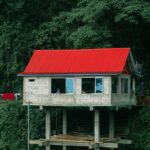Prospective immigrants eyeing Canada’s north have a significant opportunity on the horizon. The Government of the Northwest Territories has announced its third application intake period for the Northwest Territories Nominee Program (NTNP), slated to open in the coming months. This announcement is particularly noteworthy due to a series of comprehensive revisions to the eligibility criteria for its key immigration streams. These changes are designed to better align the program with the territory’s evolving economic and labour market needs, creating more strategic pathways for skilled individuals and their families to build a future in this vibrant region. This detailed guide explores the essential updates, offering profound insights into what applicants can expect from this crucial intake period.
Table of Contents
- A Deep Dive into the Forthcoming Third Intake for the Northwest Territories Nominee ProgramCritical Revisions to the NWT Skilled Worker Stream: What Applicants Must KnowNavigating the Enhanced NWT Express Entry Stream RequirementsKey Insights on NWT Nomination Allocations & Work Permit PathwaysFrequently Asked Questions (FAQs)
A Deep Dive into the Forthcoming Third Intake for the Northwest Territories Nominee Program
The announcement of a third application intake period for the Northwest Territories Nominee Program (NTNP) marks a pivotal moment for immigration to Canada’s north. This intake is more than just another opportunity; it represents a strategic recalibration by the territorial government to attract talent that directly addresses specific economic gaps. The Northwest Territories, with its unique economy rooted in resource extraction, tourism, and a growing public sector, requires a targeted approach to immigration. This third intake period is expected to be highly competitive, reflecting both the limited number of nomination allocations provided by the federal government and the increasing interest in the region’s high quality of life and economic opportunities. Applicants are strongly advised to prepare their documentation well in advance, as the intake window may be brief and subject to closing once the application cap is reached. The specific opening and closing dates will be announced officially, but early preparation is paramount for a successful submission. Understanding the broader context of NWT’s immigration strategy—which prioritizes long-term retention and community integration—is essential for crafting a compelling application that stands out. This intake will likely favor candidates who not only meet the technical requirements but also demonstrate a genuine intention to reside and establish themselves in the territory.
Critical Revisions to the NWT Skilled Worker Stream: What Applicants Must Know
The NWT Skilled Worker Stream has long been a cornerstone for employers seeking to fill positions with foreign talent when qualified Canadians or permanent residents are not available. The revised eligibility criteria for the Northwest Territories Nominee Program introduce several substantial changes to this stream that all potential applicants and employers must understand. Firstly, there is a renewed emphasis on the genuineness of the job offer and the employer’s demonstrated need. Employers will likely face increased scrutiny regarding their recruitment efforts. For applicants, the work experience requirements have been refined. While the minimum length of required experience may remain similar, there is now a stronger focus on the direct relevance of that experience to the job being offered in the NWT. Vague or tangential work history may no longer suffice. Furthermore, language proficiency requirements have been adjusted. While previously a CLB 4 was the benchmark for many occupations, the new criteria may introduce a tiered system, requiring higher language scores (e.g., CLB 5 or 6) for occupations that involve significant public interaction or safety-critical communication. This change aims to ensure that newcomers can integrate more effectively into the workplace and community. Finally, there may be modifications related to the applicant’s settlement plan, requiring a more detailed and realistic proposal for how they intend to establish themselves in the territory, demonstrating their research and commitment to life in the north.
Navigating the Enhanced NWT Express Entry Stream Requirements
For candidates in the federal Express Entry pool, the NWT Express Entry Stream offers an invaluable pathway to permanent residence by providing an additional 600 Comprehensive Ranking System (CRS) points upon receiving a provincial nomination. The latest revisions to the Northwest Territories Nominee Program bring important updates to this stream. A key change is the introduction of a territorial points-based expression of interest system, similar to those used by other provinces. This means that simply having a valid Express Entry profile is no longer enough. Candidates must now also demonstrate strong ties to the Northwest Territories. These ties could include previous work experience in the NWT, post-secondary education completed in the territory, or close family relatives residing there. Another significant update is the alignment of targeted occupations with a new, more dynamic list of in-demand jobs. This list will be updated more frequently to reflect the real-time needs of the NWT labour market. Candidates whose occupations fall within these targeted sectors will receive higher priority. It is crucial for Express Entry candidates hoping for an NWT nomination to ensure their profile is up-to-date and accurately reflects any connections to the territory. The revised system is designed to be more responsive and to select individuals who are most likely to succeed economically and remain in the NWT long-term, thereby contributing directly to the community’s growth and stability.
Key Insights on NWT Nomination Allocations & Work Permit Pathways
Understanding the numbers behind the Northwest Territories Nominee Program is critical for managing expectations. Each year, the federal government provides the NWT with a specific number of nominations it can issue—its annual allocation. This number is finite, which makes the NTNP an inherently competitive process. The third intake period will draw from this limited allocation, meaning that not all eligible candidates will receive a nomination. Applications are often processed on a first-come, first-served basis, or prioritized based on the new points system and occupational demand. A successful nomination is a monumental step, but it is not the final one. Once nominated, applicants can use their nomination certificate to apply for permanent residence with Immigration, Refugees and Citizenship Canada (IRCC). Crucially, a provincial nomination from the NTNP can also provide strong support for a work permit application. Nominees with a valid job offer in the NWT can typically apply for a work permit to allow them to work in the territory while their permanent residence application is being processed. This provides a seamless transition, enabling candidates to begin their new life and career in the north without delay.
- Limited Allocations: The NTNP operates with a fixed number of nominations annually, making the application process highly competitive.Revised Criteria: Significant changes have been made to both the Skilled Worker and Express Entry streams, focusing on job offer genuineness, relevant experience, and ties to the territory.Work Permit Support: A provincial nomination from the NWT can be instrumental in securing a work permit, allowing applicants to work while their PR application is processed.Strategic Alignment: The new rules are designed to select immigrants who best fit the NWT’s specific economic and labour market needs for long-term retention.Preparation is Key: Due to the competitive nature and potential for short intake windows, prospective applicants must prepare their documents and understand the new criteria well in advance.
Frequently Asked Questions (FAQs)
What is the Northwest Territories Nominee Program (NTNP)?The NTNP is an immigration program operated by the Government of the Northwest Territories in partnership with the federal government. It allows the territory to nominate individuals with the skills and experience needed in the local economy for Canadian permanent residence. The program includes several streams, such as the Skilled Worker Stream and the Express Entry Stream. What is the significance of the third application intake period?
This intake period is significant because it introduces a series of revised eligibility criteria aimed at better aligning immigration with the NWT’s specific labour market needs. It represents a strategic update to the program to select candidates who are most likely to succeed and remain in the territory long-term. How does a nomination from the NWT Express Entry Stream help a candidate?
A nomination from the NWT Express Entry Stream provides a candidate in the federal Express Entry pool with an additional 600 Comprehensive Ranking System (CRS) points. This substantial point increase effectively guarantees that the candidate will receive an Invitation to Apply (ITA) for permanent residence in a subsequent federal Express Entry draw. What are the key changes to the NWT Skilled Worker Stream?
The key revisions to the Skilled Worker Stream include a greater focus on the genuineness of the job offer, more specific requirements for relevant work experience, and potentially higher language proficiency benchmarks for certain occupations. Applicants will also need to provide a more detailed settlement plan. Can I get a work permit after receiving an NTNP nomination?
Yes, a provincial nomination from the NTNP provides strong support for a work permit application. If you have a valid job offer from an NWT employer, you can typically apply for a work permit to begin working in the territory while your permanent residence application is being processed by the federal government.
Talk to us to find out more. ->
The content above is not intended to provide legal advice or opinions of any kind and may not be used for professional or commercial purposes.







